Artificial intelligence is the new baseline for SaaS, where speed and differentiation are the twin currencies of survival.
Your customers do not marvel at AI anymore. They expect it, the same way they expect a login button or a dashboard.
The problem for SaaS companies is to deliver AI capabilities without blowing up their burn rate or slowing product velocity.
Fortunately, white label AI tools let you deploy AI-powered features embedded deeply enough that customers see it as your innovation.
In this piece, I’ll explain exactly how to integrate a white label AI tool into your SaaS and list out the best white-label AI platforms on the market right now.
Key Takeaways
- Building AI from scratch is a slow, expensive grind, while white label AI gives SaaS startups enterprise-grade features in weeks with branded, “built-in” intelligence.
- White label AI is useful as SEO content engines, AI chat assistants, resume builders, deepfake detection, and more.
- The best white-label AI tools provide branding control, scalability, compliance-grade privacy, and API flexibility.
- You can integrate white label AI as APIs, SDKs/widgets, or full dashboards.
- Smart SaaS companies monetize white label AI by tying it to usage (tokens/queries), gating it behind premium tiers, selling AI credits, or offering modular add-ons.
What Is White Labeling in SaaS?
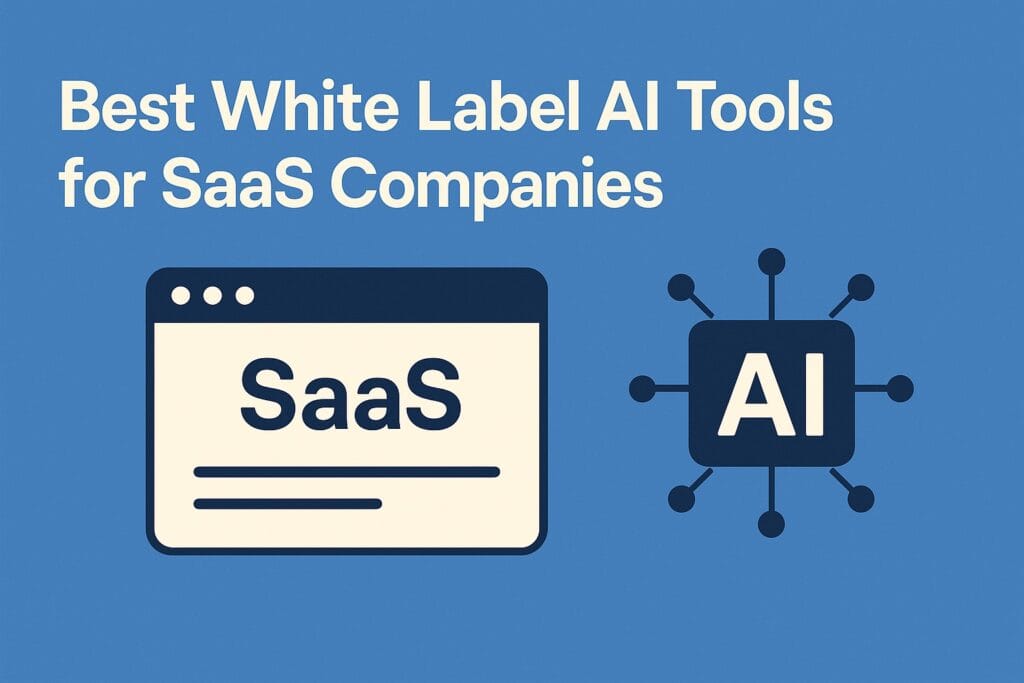
White labeling means one company builds a software product, then licenses it to another business to sell under its own brand.
The core platform, codebase, and infrastructure remain the same as the original manufacturer made, but the client company can customize its interface to make it look like they built it themselves.
For the original developer, it’s a scale play.


Never Worry About AI Detecting Your Texts Again. Undetectable AI Can Help You:
- Make your AI assisted writing appear human-like.
- Bypass all major AI detection tools with just one click.
- Use AI safely and confidently in school and work.
They can sell the same engine to dozens (or hundreds) of brands because each client targets different customer segments.
And for the reseller, it’s a shortcut to credibility since customers see a polished platform on day one instead of a buggy “beta” cobbled together in-house.
How SaaS Startups Are Using White Label AI
Training a proprietary large language model or building an AI-powered recommendation engine from scratch is out of reach for most startups. White label AI tools close that gap.
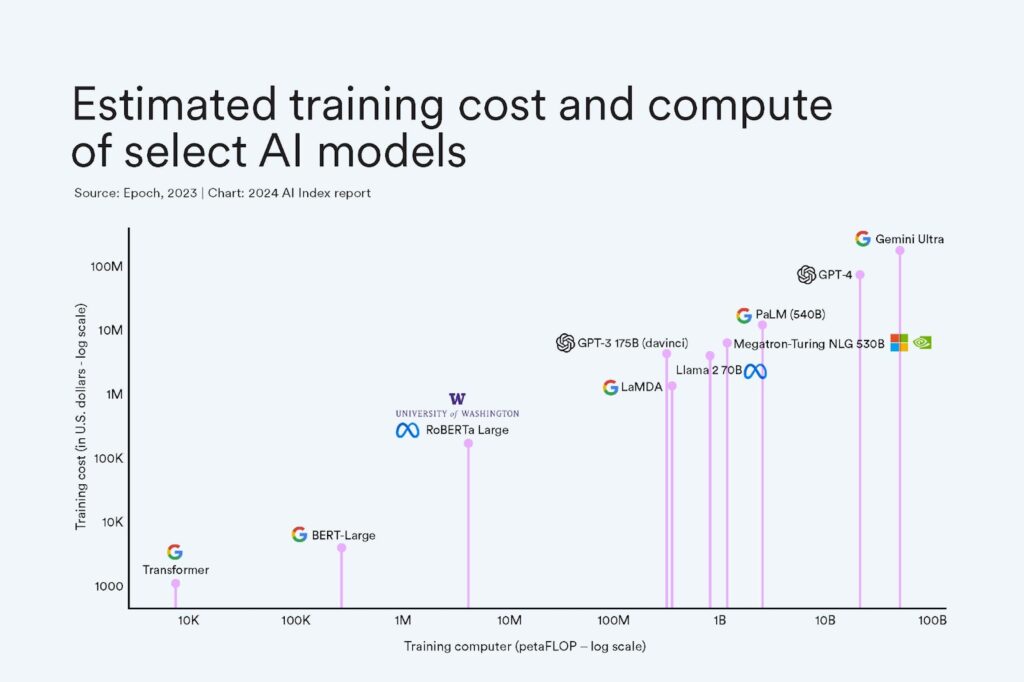
Here’s how SaaS startups are using it:
- Embedding AI into niche platforms, for example, a project management tool can integrate a white label AI summarizer so teams can instantly distill meeting transcripts.
- Offering AI as a premium upsell, as in a CRM startup selling AI-powered lead scoring software under their own brand, even though the underlying AI model belongs to a white-label provider.
- Expanding faster into verticals. White label AI lets a SaaS company tailor features to different industries without a complete rebuild.
Benefits of White Label AI for SaaS Businesses
White label AI is a growth accelerator when done right.
The first and most obvious advantage is speed. Developing custom AI capabilities from scratch requires at least a year of hiring, dataset curation, model training, and endless QA cycles.
By contrast, white label AI lets you launch those same features in weeks.
It has been reported that 61% of companies using white-label AI hit the market faster than those developing in-house.
Also, building AI in-house is an ongoing drain on resources. You need machine learning engineers, data scientists, massive computing power, and continuous retraining to keep your models running.
White label AI shifts that burden to the provider as your team focuses on user experience only.
There’s also the credibility factor. Enterprise clients expect AI-driven functionality as standard in modern platforms.
AI capabilities under your own brand instantly open doors for higher-value deals that would otherwise be out of reach.
Key Features to Look For in a White Label AI Tool
You will find different kinds of white label AI tools. Some tools are little more than rebranded APIs with limited customization, while others are full-fledged AI engines built for enterprise-scale deployment.
However, the following features are what you must look for in any functional, startup-friendly tool:
- Deep branding control: You should be able to customize the UI, domain, color schemes, email templates, and the tone of AI-generated outputs.
- Scalable infrastructure: AI workloads are compute-intensive. Their performance should hold steady whether you have 100 users or 100,000. Only go for white-label AI providers with established cloud infrastructure. Bonus points if they can share real performance benchmarks instead of “99.9% uptime” claims.
- Data privacy: If you handle sensitive or regulated data, your white label provider must meet the same compliance standards you’re accountable to, i.e., GDPR, HIPAA, SOC 2, or ISO 27001, etc.
- API flexibility: The tool should play nicely with your existing CRMs, ERPs, analytics platforms, or niche industry systems.
Top Use Cases for White Label AI in SaaS
White label AI is a retention magnet for SaaS businesses that implement it with intent.
Below, I discuss some of its commercially viable and widely adopted use cases.
Content Writing and SEO
If there’s one thing SaaS platforms can’t get away from, it’s content, and that’s exactly why writing and SEO are the hottest white-label integrations in the SaaS space.
Rather than building language models from scratch (which, unless you have a spare billion lying around, is unrealistic), SaaS companies plug in white label AI tools and immediately offer content services under their own brand.
It’s pretty easy to add revenue streams by embedding white label-ready tools like:
- AI Essay Writer for education
- AI SEO Writer for marketing and content automation clients
- AI Detector and Humanizer for compliance-heavy industries
- TruthScan to ensure content authenticity
- AI Paraphraser for knowledge platforms and multilingual tools
AI Chat Assistants and Customer Support AI
Customer conversations are messy.
They happen across time zones, languages, moods, and they never stop. With a white label AI assistant, you can instantly offer 24/7 intelligent support, sales enablement, and onboarding without hiring armies of agents.
The beauty of white labelling is that users will customize their assistant to reflect the brand’s tone and knowledge base.
It will never feel like talking to a third-party add-on.
The monetization angle is equally strong. You can package the assistant as a premium feature and charge per seat, per conversation, or usage tier.
Email, Resume, or Document Automation
None of us wakes up excited to format a CV, draft a cover letter, or chase document templates.
Yet, these are critical, time-consuming tasks across industries.
White label AI tools in SaaS have made it possible for platforms to automate writing, formatting, and compliance-heavy documentation at scale.
There are many such practical uses for different industries.
For example, there are AI-powered resume builders for HR and recruiting SaaS similar to LinkedIn’s “Easy Apply,” but fully branded within your HR tool.
Or, offer automation tools that draft NDAs, contracts, or compliance reports for legal tech SaaS.
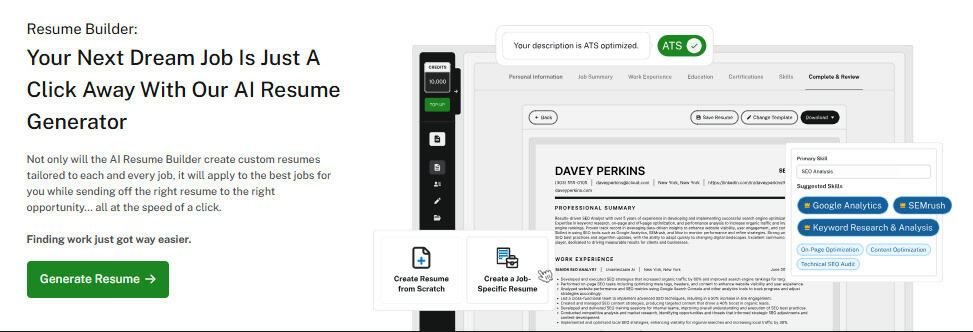
Detection or Moderation Tools (AI Image, Scam, Deepfake, etc.)
The internet has a content problem. Not just too much of it, but too much of the wrong kind, i.e., scams, fake reviews, deepfakes, explicit images.
SaaS companies can plug in AI models trained to spot fraud, inappropriate content, or manipulated media and offer these under their own brand.
Social media SaaS, for example, may use AI models to flag hate speech, spam, or explicit images before they go live.
Education platforms can integrate AI detectors to catch plagiarism and AI-generated essays.
Communication SaaS may use Deepfake detection to ensure uploaded images and videos are authentic and protect brands from reputational damage (or from accidentally hosting the next viral “AI-generated celebrity scandal”).
For example, here’s an AI image of a flamingo generated using Stable Diffusion.

Now, let’s put Undetectable’s AI detector to the test and see if it can accurately tell the image is AI-generated.
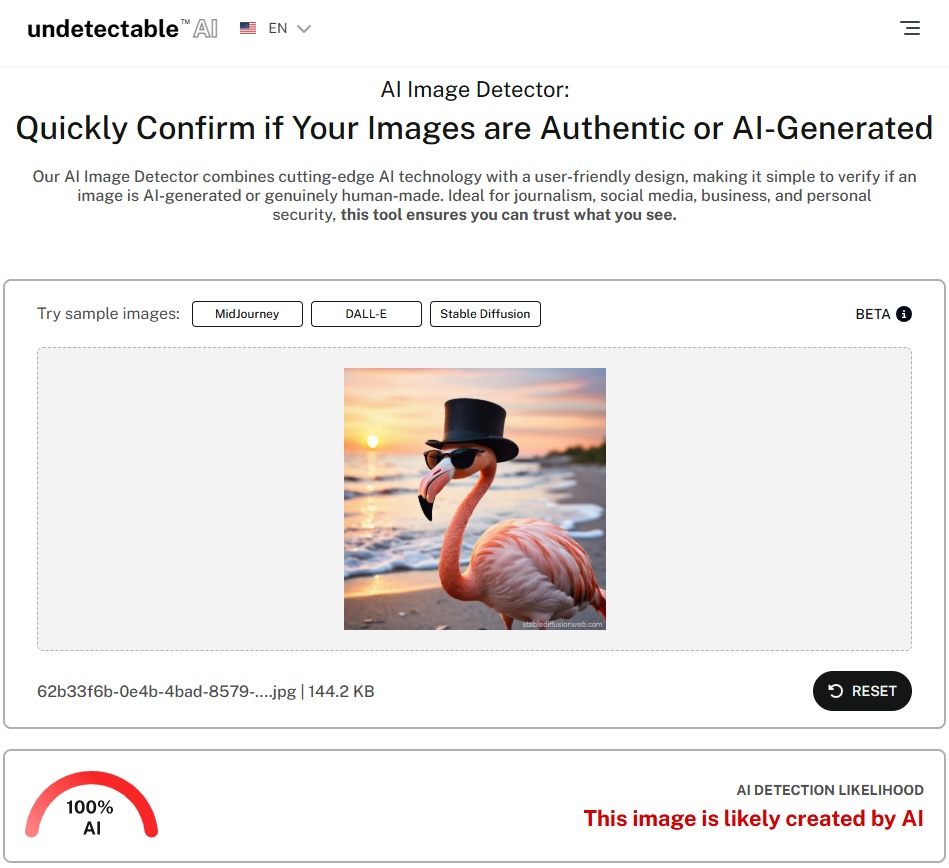
As you can see, the image AI detector by Undetectable AI has flagged this image as 100% AI-generated.
Deepfake Detection as a Premium SaaS Security Feature
For SaaS companies that manage user-generated visuals or media uploads, security and authenticity are now product essentials.
Our Undetectable AI’s Deepfake Detection can be white-labeled as a premium trust and compliance layer inside your platform, instantly identifying manipulated or AI-generated visuals before they go live.
It analyzes frame-level details, lighting consistency, and pixel structures to catch subtle visual forgeries that standard moderation systems miss.
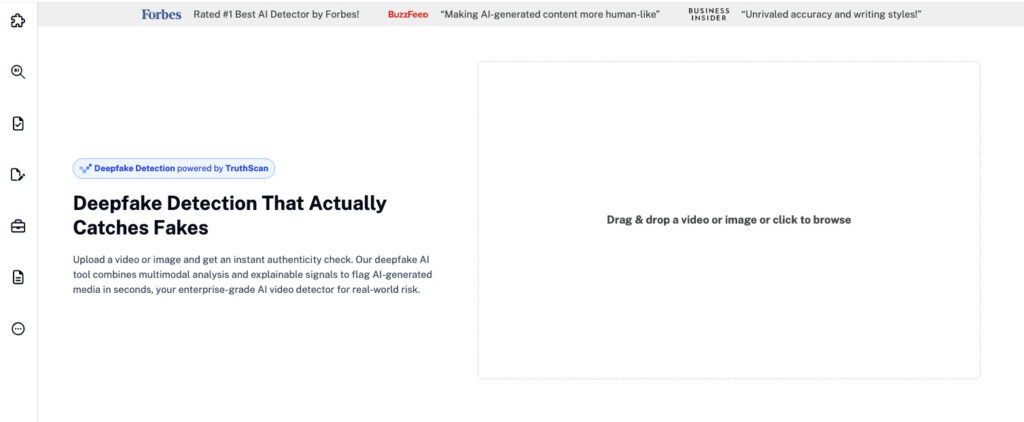
By integrating Deepfake Detection, SaaS platforms can offer enterprise clients stronger fraud prevention, content authenticity verification, and compliance protection—all under their own brand.
Best White Label AI Tools for SaaS Companies
You will find hundreds of AI white label tools providers in the market.
But do all of them perform up to the mark? Of course not. So here are our top 3 picks:
Undetectable AI: Content Humanization + Detection
One of the biggest challenges in SaaS right now is balancing AI efficiency with authenticity.
Yes, generative AI can produce essays, blog posts, and product copy in seconds, but if that content trips up plagiarism checkers or AI detectors, its value immediately collapses.
That’s the problem Undetectable AI was built to solve.
Undetectable AI gives SaaS companies a suite of content creation tools that don’t just generate text but make sure it passes as authentically human.
It offers the following tools:
- AI Essay Writer, perfect for LMS and EdTech SaaS
- AI SEO Writer for marketing and content automation platforms
- AI Paraphraser that rewrites content for clarity and originality
- AI Detector and Humanizer that flags AI-generated text where compliance demands it and humanizes your content
Chatbot Builders: Tidio, Manychat, Botpress
Chatbots in SaaS are AI-driven engagement machines that handle sales, support, and onboarding with frightening efficiency.
Tidio, Manychat, and Botpress are some white label chatbot providers with exceptional features:
- Tidio blends AI-driven chat with live agent fallback so the customers won’t get stuck in bot loops. SaaS vendors offering CRMs, AI helpdesk platforms, or even e-commerce tools can white label Tidio while keeping human oversight intact.
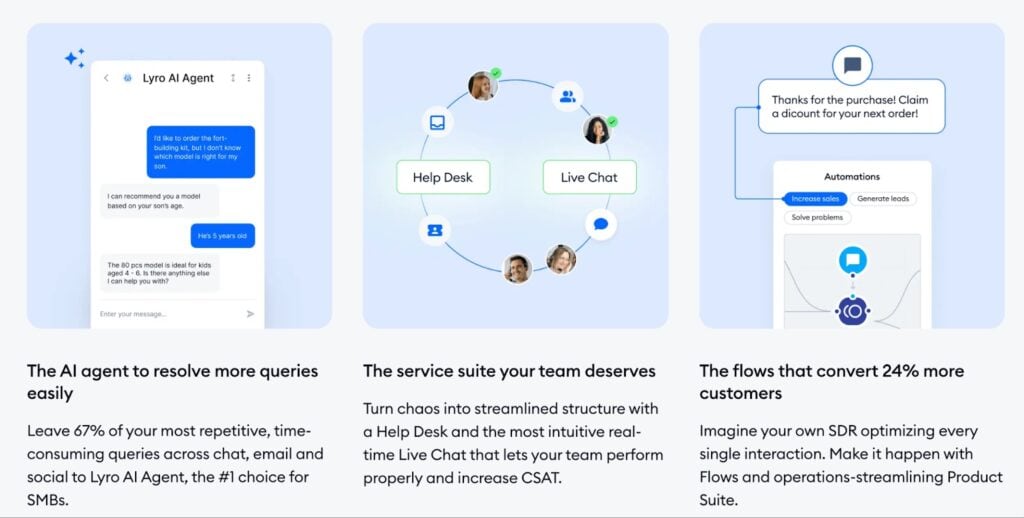
- Manychat is for marketing-heavy SaaS with the best automation across Messenger, Instagram, and WhatsApp. Also, if your clients run online stores or service businesses, Manychat helps them automate lead capture too. It’s revenue-driving automation you can charge premium tiers for.

- Botpress is modular, open-source, and API-first, which makes it the right fit for SaaS targeting regulated industries or custom workflows (healthcare, finance, public sector)
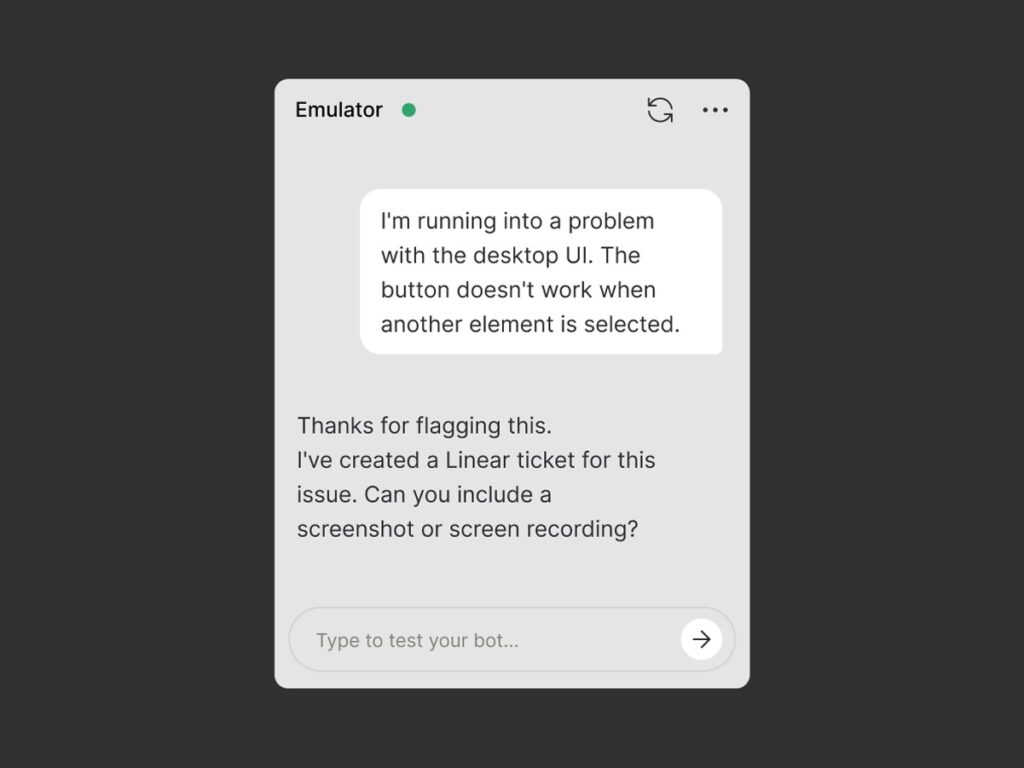
DeepAI, OpenAI, or Cohere for Custom API Access
Some SaaS companies don’t want an out-of-the-box tool. They just want raw AI to weave directly into their workflows and product features.
Here, custom API access from providers like DeepAI, OpenAI, and Cohere comes into play.
- DeepAI is a budget-friendly white label provider with a range of APIs for text generation, image creation, and moderation without locking you into heavy licensing costs.
- OpenAI APIs are for those with enterprise reach. Its GPT-powered APIs drive chat interfaces, document summarization, coding assistants, and multilingual support at scale.
- Cohere’s APIs are laser-focused on NLP (natural language processing), i.e., classification, semantic search, summarization, and embeddings. Cohere delivers the infrastructure to make text actionable.
How to Integrate a White Label AI Solution
There are 3 ways to integrate white label AI tools into your SaaS.
- API Integration is the most flexible route where the vendors provide APIs you can wire directly into your backend. It gives you granular control over how AI features show up inside your SaaS for which, naturally, you’ll need a strong dev team.
- SDKs and embedded widgets, offered by Tidio or Undetectable AI, are similar to plug-and-play modules. You just have to drop them into your app, so they’re faster to launch than raw APIs.
- Some providers deliver complete, ready-to-reskin dashboards that you brand as your own SaaS product. It requires the least engineering effort, but there’s not much you can do with UX and workflow customization.
Monetization Strategies for White Label AI
White label AI creates new revenue levers for your SaaS. Here’s how you can monetize these AI integrations:
- Tie your AI features to consumption metrics, e.g., tokens, queries, words generated, images created, etc. It’s the same model OpenAI runs on, and it works pretty well when re-bundled inside your SaaS.
- Keep your base SaaS plan intact, but gate AI behind higher tiers so your AI features are seen as premium. HubSpot, for example, keeps its CRM free, but its AI-powered forecasting is under the paid Pro plan.
- Sell “AI credits” that customers burn through when they run tasks. In this model, users buy credits, and then they stick around to use up their credits.
- Package all your AI modules as separate add-ons inside your SaaS marketplace, and let customers pick and pay for the modules they need.
Ready to see the difference? Launch our AI Detector and Humanizer in the widget below!
Final Thoughts
We’ve covered a lot of ground here, and hopefully by now, you’ve picked up a thing or two about how white-label AI tools will give your SaaS company a serious edge.
Business today does not require you to reinvent the wheel. Simply adopt, adapt, and scale through white label tools while keeping your brand front and center.
Before you wrap up, explore Undetectable AI’s AI Essay Writer, AI SEO Writer, AI Paraphraser, AI Detector and Humanizer—powerful tools to elevate your content strategy.
And speaking of smart plays, Undetectable AI will surely be a valuable addition to your AI tools stack.
Check out Undetectable AI today and start creating content that performs.
